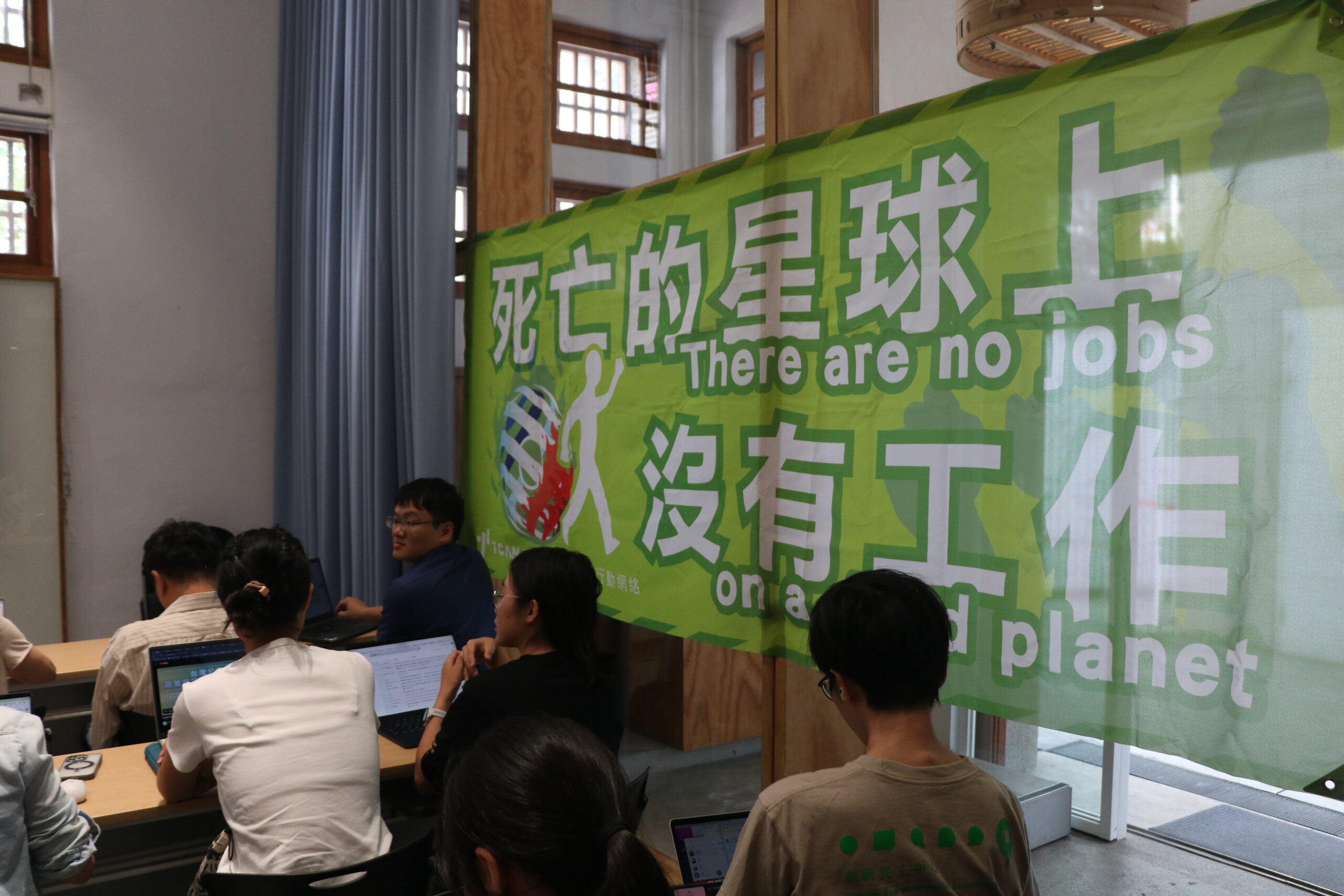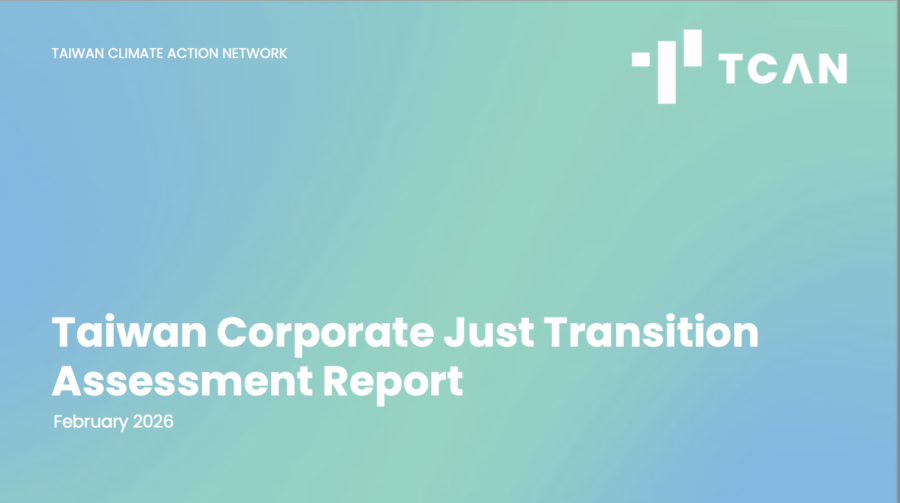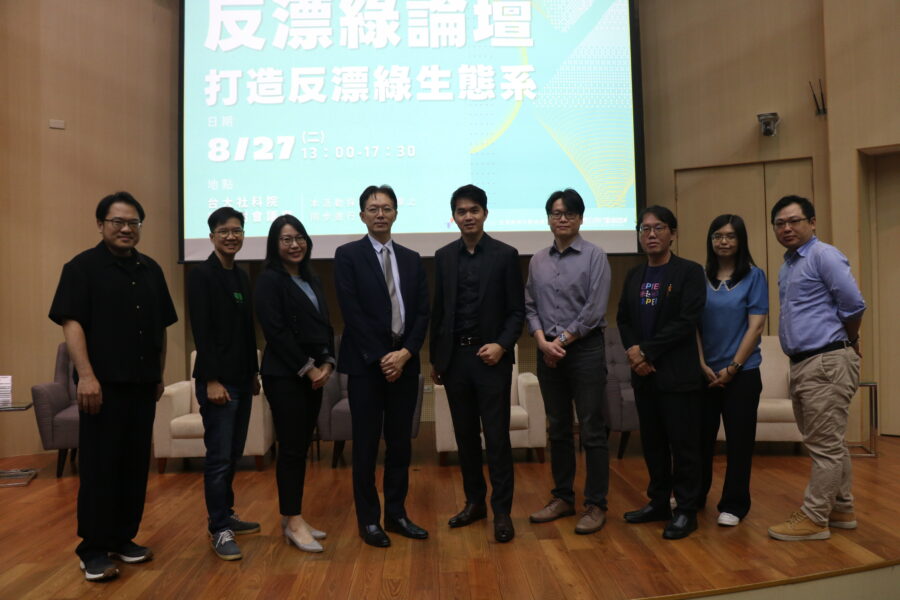On 12 September, TCAN launched our Just Transition Outlook in Taiwan: Innovating Governance and Fostering a Support System policy report. As the first policy report focusing on just transition in Taiwan, we examined the current state of just transition policy and governance planning and proposed a total of 11 policy recommendations in the areas of “governance innovation”, “industrial transformation”, and “support system”.
Our researcher, Yang Pei-wei, introduced the 11 recommendations and the local contexts and international best practices from which we drew them. Overall, while the Taiwanese government has made significant progress in building the governance and legislative frameworks over the past few years, much remains to be done in strengthening stakeholder engagement, identifying transition impact hotspots, and incorporating administrative resources in social protection, public health, green finance, carbon pricing, etc. to better align capital and resources with a healthy, decarbonised, and empowering future.
For instance, a recent study from the Ministry of Labour’s Institute for Labour, Occupational Safety and Health estimated that 25,000 people may become unemployed from 2040 to 2045 due to Taiwan’s net-zero transition. However, there has been insufficient analysis of such impacts’ types, timescales, and distribution. Our report builds on these existing studies and provides a preliminary analysis, suggesting that the net-zero transition will significantly affect as much as 2.35 million workers (20% of Taiwan’s employed population). A third of them will be rank-and-file workers, and around 2 million will face rather immediate impacts by 2030. Pei-wei urged the Ministry of Labour and all competent authorities involved in Taiwan’s net-zero transition to conduct further analysis into the impacts of their transition measures on existing employment patterns and fill in any regulatory and social protection gaps as soon as possible to mitigate them.
Associate Professor Lin Chun-yuan of National Taiwan University’s College of Law emphasised the need for more explicit policy frameworks, guidelines, and review mechanisms. These are crucial to synergising our decision-making and planning mechanisms, channels of knowledge and quality information, social dialogue, public and private capital, labour, and social protection policies around just transition principles. Only with these structures in place can the “mainstreaming” of just transition move beyond the mere proliferation of the term and truly guide our climate governance.
Associate Professor Chiu Yu-fan of the National Yang Ming Chiao Tong University School of Law elaborated on the challenges that Taiwanese corporate and professional unions face in advocating for just transitions – stemming from regulatory and legislative hurdles in union organisation and collective bargaining. Kaohsiung City Confederation of Trade Unions (KCCTU) ‘s Director-general Yeh Pin-yan added that it can be difficult for front-line workers to imagine how one can proactively participate in the transformation of their working environment, due to the labour-management dynamics that have locked-in overtime. A continued and more comprehensive dialogue around just transition is therefore critical to empowering workers and unions to advocate for themselves better. Given the low union coverage and said challenges of union advocacy for just transitions, Professor Chiu and Director-general Yeh both suggested that negotiating framework just transition agreements through nationally or regionally confederated unions may be a way potential point of breakthrough in the short- and medium-terms.
You may access the live recording and slide decks from the forum at the links below:



